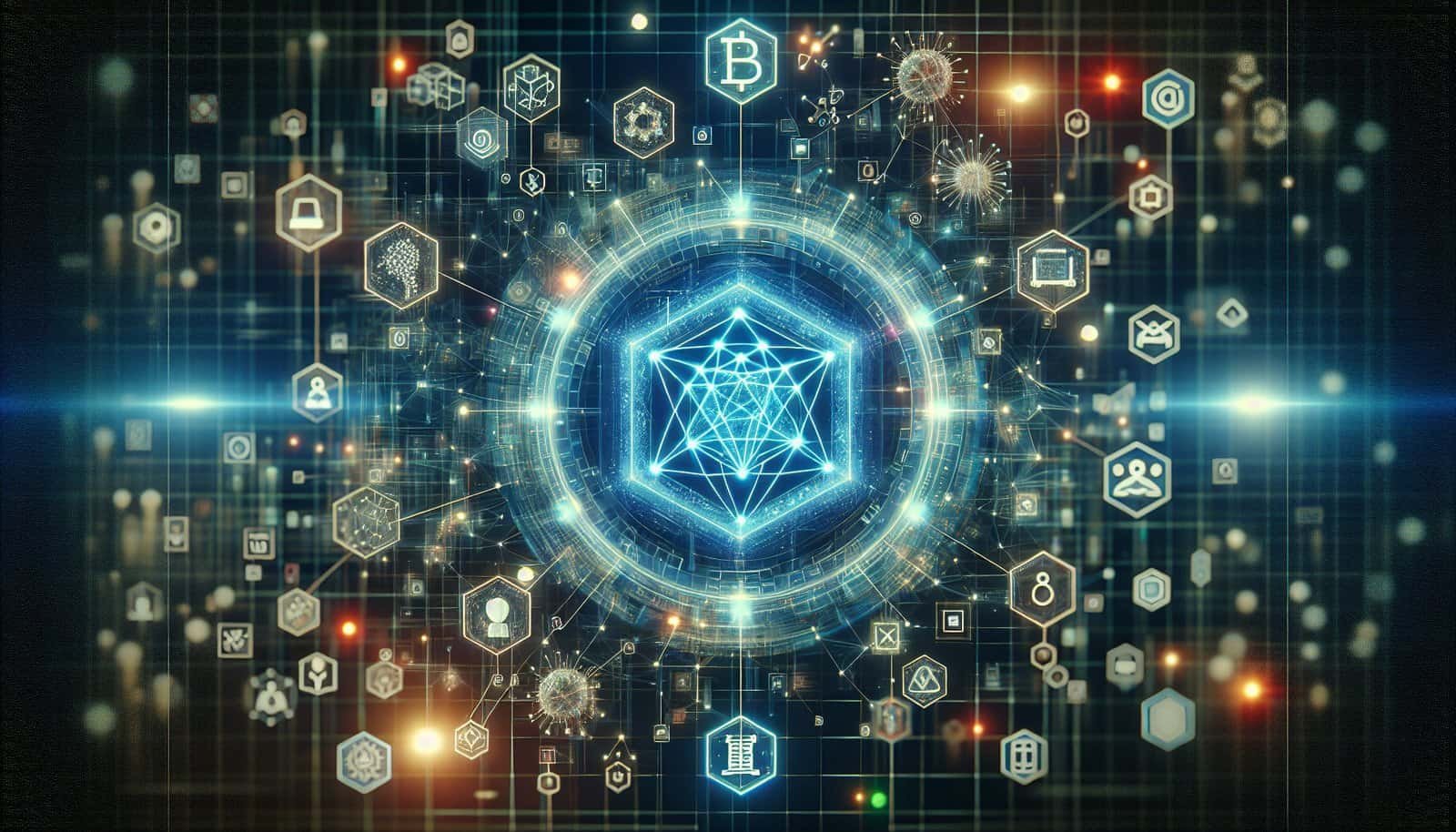Have you ever wondered how artificial intelligence might revolutionize the world of smart contracts? If you’re even slightly curious about the interplay between blockchain technology and AI, you’re in the right place.
Smart contracts, a key feature of blockchain technology, have reshaped the way transactions and agreements are executed. These self-executing contracts come with terms of the agreement directly written into lines of code. They offer speed, security, and transparency, eliminating the need for intermediaries. But now, AI is stepping into this picture, promising to create even smarter systems that can generate, evaluate, and maintain contracts with unprecedented precision and efficiency.

What Are Smart Contracts?
Smart contracts function as automated programs that execute predefined conditions once agreed upon by parties. They work on decentralized networks like Ethereum, ensuring that all relevant parties adhere to the contract’s terms without the need for a middleman. Imagine it as a digital vending machine; you insert the required input, and it automatically delivers the output without human intervention.
By providing a safe, secure, and fast way to carry out transactions, smart contracts have found significant applications in a variety of industries, from finance to healthcare. They minimize the risk of fraud, reduce transaction costs, and their transparent, immutable nature means every step is verified and available for audits.
The Role of AI in Generating Smart Contracts
The integration of AI into the world of smart contracts is transformative. With the power of machine learning and complex algorithms, AI enhances smart contracts by automating their creation and refining their efficiency. AI-generated smart contracts can interpret, draft, and negotiate terms based on data-driven insights, making them much more than just automated executors.
Why AI-Generated Contracts?
The incorporation of AI streamlines the process of smart contract generation in several compelling ways. First, it speeds up the creation of contracts, as AI can parse and understand massive datasets much quicker than traditional methods. AI can also predict outcomes based on historical data, optimizing the terms and helping both parties reach a more favorable agreement.
How AI Generates Smart Contracts
AI uses natural language processing (NLP) to create smart contracts. NLP enables AI to understand legal jargon and interpret the human language nuances within contracts. Once the desired conditions are articulated, machine learning algorithms analyze this input, translating it into executable code. This process is both faster and more accurate than manually coding contracts, freeing up resources and reducing the likelihood of errors.
Advantages of AI-Generated Smart Contracts
Integrating AI with smart contracts provides several notable benefits, enhancing their overall effectiveness and reliability. Below, you’ll find some of the most consequential advantages:
Enhanced Accuracy and Efficiency
AI-generated smart contracts reduce human errors significantly. By automating the drafting and execution phases, they ensure that contracts are not only generated more swiftly but also boast a higher level of precision. Given the repetitive and data-intensive nature of contract creation, AI’s capability to handle these elements without fatigue is invaluable.
Dynamic Adaptability
The dynamic handling of contracts is a significant leap forward facilitated by AI. Traditional smart contracts require new coded agreements for changes, but AI-generated contracts can adapt to new conditions seamlessly. This adaptability is crucial in industries characterized by rapid changes, such as finance, where terms may need constant updating based on fluctuating markets.
Cost-Effectiveness
AI minimizes the need for legal consultations and middleman services by automating much of the drafting process and negotiations. This automation does not only cut down time but also reduces costs significantly. Companies no longer need to employ large legal teams to review or draft each contract meticulously.
Improved Security
By leveraging AI, smart contracts can enhance the security measures already present in blockchain technology. AI can predict potential vulnerabilities by analyzing past data and adjusting the contract protocols accordingly, providing an additional layer of security against fraud and breaches.
Potential Applications of AI-Generated Smart Contracts
The practical applications of AI-generated smart contracts are extensive. As industries evolve, these contracts will increasingly support innovative changes. Here’s how:
Finance and Banking
In finance, where speed, reliability, and accuracy are paramount, AI-generated smart contracts can transform how transactions are conducted. They enable instant execution of trades, real-time settlements, and automatic compliance with financial regulations, reducing operational risks associated with manual processes.
Healthcare
AI-generated contracts can manage patient data efficiently by ensuring secure sharing between authorized parties. This could speed up the lengthy process associated with medical insurance claims or help seamlessly integrate patient records across different healthcare providers, saving time and providing consistency in patient care.
Supply Chain Management
In supply chains, AI-generated contracts can monitor and enforce agreements autonomously. They can track shipments, verify delivery conditions, and automatically trigger payments, thereby reducing delays and disputes over terms, enhancing trust between stakeholders.

Challenges and Considerations
While AI-generated smart contracts hold immense potential, they are not without their challenges. Before a wide adoption, considering these issues is crucial:
Complexity and Understanding
AI-generated smart contracts require a robust understanding of both technologies. Not all companies have the resources or technical expertise to deploy these AI-driven systems efficiently, which can hinder adoption. Proper training and perhaps the emergence of new service providers specializing in these contracts will be imperative.
Regulatory Uncertainty
The legal frameworks around AI and blockchain are still evolving. This shifting landscape can create hesitancy among businesses fearing non-compliance. Governments and policy-makers will need to establish clear guidelines that accommodate these new technologies, ensuring they remain within legal bounds while fostering innovation.
Ethical and Privacy Concerns
With AI’s ability to process and analyze data, privacy concerns naturally arise. Ensuring that all parties’ data is protected is essential, and safeguards must be in place to handle sensitive information responsibly. Ethical considerations must also be accounted for, ensuring the technology is used to benefit all parties fairly.
The Future of AI-Generated Smart Contracts
In the coming years, AI-generated smart contracts will likely become a common part of business operations. The integration of blockchain and AI will continue to evolve, providing foundational changes in how transactions and agreements occur worldwide. The future might even hold possibilities for smart contracts to be self-optimizing, learning from past agreements to fine-tune terms and ensure even fairer outcomes for all parties involved.
Key Innovations on the Horizon
As AI progresses, smart contracts could become more intuitive and user-friendly, integrating voice recognition and more sophisticated NLP to further simplify their creation and use. Integration with IoT (Internet of Things) could also open new avenues, with devices autonomously interacting with smart contracts to fulfill agreements based on real-time data.
Impact on the Labor Market
While AI will alter traditional roles, it will also create opportunities in new sectors. There will be a demand for skilled individuals who can bridge the gap between AI capabilities and legal expertise. Training professionals across industries to understand these AI systems will become a pivotal part of workforce development.

How Can You Get Started?
If the prospect of AI-generated smart contracts excites you, you might be wondering how you can adopt or adapt to this technology in your field. Here are some suggestions:
Research and Education
Immerse yourself in understanding both blockchain and AI technologies. Online courses, webinars, and workshops can be valuable resources. Being equipped with this knowledge will help you recognize the potential applications and benefits for your specific industry.
Collaborate with Tech Experts
Partnering with technology firms or experts who specialize in AI and blockchain can simplify the adoption process. These collaborations can provide the necessary insights and technical support, ensuring successful implementation.
Pilot Projects
Start with a pilot project to explore the potential of AI-generated smart contracts. This approach will allow you to assess the technology’s impact on your processes and identify areas for improvement.
Final Thoughts
AI-generated smart contracts represent a bright frontier, promising to streamline agreements and transactions with remarkable efficiency. As AI continues to evolve, its synergy with blockchain technologies like smart contracts will revolutionize industries by enhancing accuracy, security, and adaptability. However, like any revolutionary technology, they come with challenges that need mitigation. With strategic planning and adequate understanding, you can harness the immense potential of AI-generated smart contracts, making your processes not only smarter but also more efficient and secure. As the landscape continues to shift, being proactive and informed will ensure that you are well-positioned to reap the benefits of this transformative technology.

